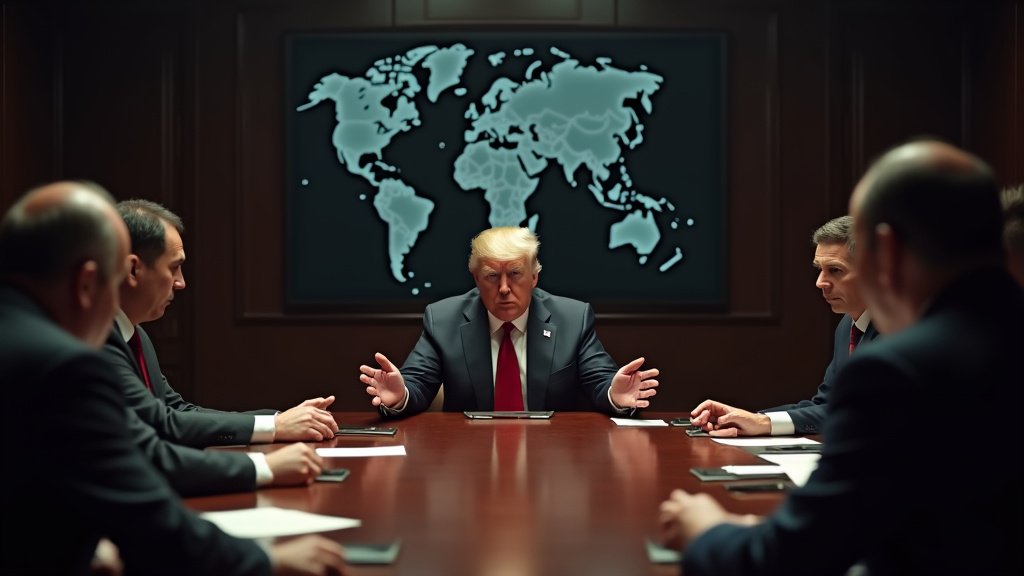The Trump administration is poised to significantly escalate workplace enforcement operations targeting businesses suspected of hiring undocumented immigrants, a top White House official announced. The intensified focus on employers follows a large-scale immigration raid at a Hyundai facility in Georgia that resulted in the arrest of hundreds of individuals. White House border czar Tom Homan stated that these operations are crucial to level the playing field for businesses that adhere to immigration laws and hire documented workers, preventing those who exploit lower wages and harsher conditions for undocumented employees from gaining an unfair competitive advantage.
The Hyundai Raid: A Sweeping Operation
On September 4th, U.S. Immigration and Customs Enforcement (ICE) agents, in conjunction with approximately ten federal and state agencies, conducted a raid on a Hyundai-LG battery plant under construction in Ellabell, Georgia. The operation, described as the largest single-site enforcement action in the Department of Homeland Security’s (DHS) two-decade history, led to the detention of 475 individuals on immigration violations. The vast majority of those arrested were South Korean nationals.
According to ICE officials, many of the detained individuals had overstayed their visas, entered the U.S. illegally, or were present in the country on tourist or business visas that did not permit employment. While Hyundai Motor Company stated that none of the detained individuals were direct employees of the automaker, they acknowledged they were aware of the enforcement action at their supplier’s construction site. The South Korean government expressed concern over the raid and subsequently negotiated a deal with U.S. authorities for the repatriation of over 300 of its detained citizens, arranging for a charter plane to bring them home.
This raid was the culmination of a months-long investigation into alleged illegal hiring practices at the facility. Video released by ICE showed federal agents escorting and handcuffing workers at the site.
Rationale Behind Intensified Enforcement
Tom Homan, a prominent figure in the Trump administration’s immigration policy, explicitly stated that more worksite enforcement operations are forthcoming. “We’re going to do more worksite enforcement operations,” Homan declared, emphasizing the administration’s view that companies hire undocumented workers not out of benevolence, but to exploit them for cheaper labor and to undercut competitors who employ U.S. citizens. He articulated the stance that “entering this country illegally is a crime, and knowingly employing illegal residents is also a crime,” asserting that such actions undermine businesses that pay legal wages to American workers.
The administration’s strategy aims to deter employers from hiring individuals without legal status, thereby addressing both illegal immigration and economic fairness. This approach aligns with a broader push by the Trump administration to significantly increase immigration enforcement across various fronts, including border security and internal immigration operations.
A History of Escalating Workplace Enforcement
The recent Hyundai raid is not an isolated incident but part of an ongoing trend under the Trump administration. Since 2017, there has been a notable increase in the frequency and scale of worksite immigration raids. ICE’s Homeland Security Investigations (HSI) division has been directed to expand these operations, focusing on criminal prosecution of employers and utilizing I-9 audits and civil fines to ensure compliance with the Immigration Reform and Control Act (IRCA) of 1986. This law mandates that employers verify the identity and work eligibility of all individuals they hire.
Previous large-scale worksite enforcement actions during the Trump administration included raids on meat processing facilities and other industrial sites, with some operations leading to hundreds of arrests. These actions have been a hallmark of the administration’s commitment to disrupting the employment of undocumented immigrants.
Implications for American Industries and Businesses
The intensified focus on worksite enforcement has raised concerns among some business groups and industries that rely heavily on immigrant labor. Sectors such as agriculture, hospitality, and meatpacking have historically depended on a workforce that includes individuals without legal status. Critics argue that a stringent crackdown could disrupt operations, increase labor costs, and potentially impact the American economy. Some employers have reportedly expressed significant concern, fearing potential civil and criminal sanctions and the operational challenges of losing a substantial portion of their workforce.
Conversely, the administration maintains that its actions are aimed at enforcing the law and protecting American workers. President Trump himself has weighed in, calling on foreign companies investing in the U.S. to respect immigration laws and prioritize hiring and training American workers. He acknowledged that legal pathways exist for skilled foreign talent but stressed adherence to U.S. regulations.
Future Outlook
Tom Homan has indicated that this strategy will continue, with potential enforcement operations extending to “sanctuary cities” and a wide range of industries. This ongoing American story of immigration enforcement signifies a determined effort by the administration to hold employers accountable and to curb illegal employment. As the administration plans further worksite enforcement operations, businesses across the nation will likely face increased scrutiny regarding their hiring practices and compliance with immigration laws. The ultimate impact on the American labor market and the broader economy remains a subject of ongoing debate and observation.









